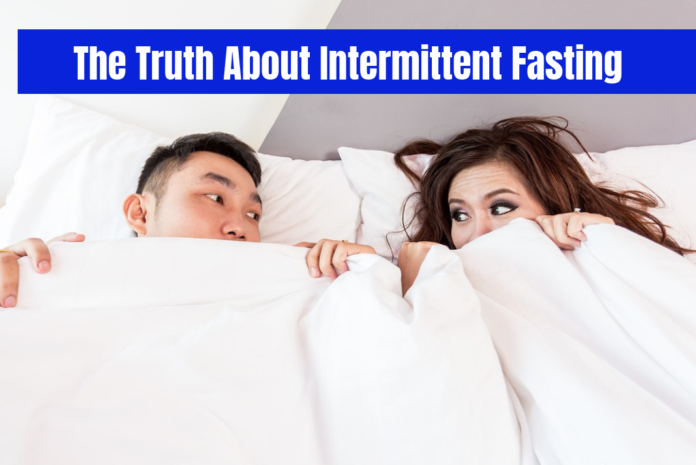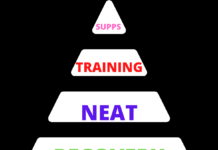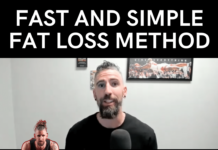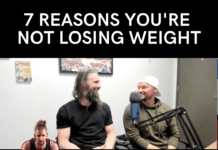Fasting has been around for a long, long time. For proof of this check out 2nd Samuel in the Bible, which was recorded around 1010 B.C. This is several years before the advent of the internet, and roughly 100 years before the first Kardashian krawled out of the primordial goo to post a selfie on “The Daily Papyrus”.
But recently fasting has become more mainstream, with different types popping up all over, claiming radical fat loss and other magical properties. There are also many people coming out demonizing the fad of “not eating” for fear of the dreaded starvation mode.
So what’s up with Intermittent Fasting? Cool or nah?
In this article, we’ll cover:
- Why Does Intermittent Fasting Work?
- Can Women Do Intermittent Fasting?
- How Do You Get the Most of Out of A Intermittent Fasting Diet
- What Should You Eat When You Break Your Fast (click the link above)
Why Does Intermittent Fasting Work?
When people talk about intermittent fasting, they tend to hype a lot of the benefits and will often tell you that this is a magical diet, or “It’s so much better than X, Y, or Z.”
REASON ONE: When your calories in are lower than your calories out, you start to drop weight. That’s the reason ALL diets work.
But the reasons that diets work, not just IF, is that you are restricting your calories. That’s literally it. So keto, intermittent fasting, Atkins, low carb, the cotton ball diet, everything. They all work because when you restrict calories, you lose weight.
Now that’s an overly simplistic view, because it doesn’t take into account hormonal stuff, and thyroid issues, etc – but for 95% of people that’s all you need to know.

REASON TWO: Intermittent Fasting can help your body regulate its hormonal balance.
Many people are in a state of insulin resistance, which basically means that after eating food your body provides MORE insulin than necessary to shuttle your nutrients to their appropriate locations.
So after digesting your food, you’ll still have insulin in your system running around looking for blood sugar to help process. Since it can’t find any – it signals your brain to tell you that you’re hungry (which messes with the hormones grehlin and leptin (SOURCE)
So even though you just ate a big meal, now you’re having feelings of hunger again specifically to consume something sweet to normalize your blood sugar (since your body thinks you’re in a defect).
So we eat again, which gives up more blood sugar, insulin spikes above what we need, and the process continues.
With IF comes a chance for your blood sugar and insulin levels to normalize and reset. This is something that we don’t get on a daily basis, especially when you think about the common nutrition advice of “eat 6 small meals per day”.
note: this advice does NOT apply to type 1 or 2 diabetics. Consult your Doctor before attempting a fasting protocol.
REASON THREE: When you’re not eating, or digesting food, your body starts a process called autophagy, which is your body’s own natural cleansing mechanism. (SOURCE)
Autophagy breaks down and replaces old cells that aren’t functioning anymore with new cells. It’s now your body repairs itself.
Your body will have gone through a total rebuild every seven years, so the cells you have today will not be the cells you have seven years from now.
This is another great reason for eating nutritious food because we’re constantly repairing and replacing our cells in our body. So its important to replace them with good shit and not just French Fries.
REASON FOUR: Intermittent Fasting Will Help you Regain Control of Your Hunger
Another great thing about intermittent fasting that many people won’t tell you is that it shrinks your stomach. When you go 16-24 hours without eating, your stomach shrinks slightly.
So when you do go have a big ol’ burrito, you’ll get through half of it, and think, “Oh, I’m not quite as hungry as I thought I was.” So then you can either do what we as Americans do and push through the pain and get back to our old habits, or you can let that intermittent fasting be a jumping-off point where you don’t necessarily have to eat as much.
Is Intermittent Fasting Safe For Women?

Intermittent fasting for females is totally different than it is for males. Due to our differences in physiology and what our bodies are built for, we have to take several other aspects into consideration.
Males historically are hunters and providers. Long periods without eating will activate the sympathetic nervous system allowing them to have more energy to hunt and find something to eat. Daily stressors like not eating for 16 hours can be totally fine and actually create intense feelings of focus.
Females have a different biological drive to have children, and since females have a limited amount of eggs (compared to infinite sperm in men) Ladies bodies are more protective of fat stores and are more sensitive to repeated stressors.
So the 16 hour fasts for females can be really negative if done over a sustained period of time. When you’re fasting, your body will be like, “Whoa, we don’t have enough calories to have this baby,” even if you’re not pregnant, and it can start shutting down important processes (SOURCE)
If you’re confused on whether this is right for you, and want a program that will guarantee your results and take the guesswork out of it, CLICK HERE to fill out a short survey to see if you’re right for my 12 in 6 fat loss system.
The Best Type of Fasting For Men
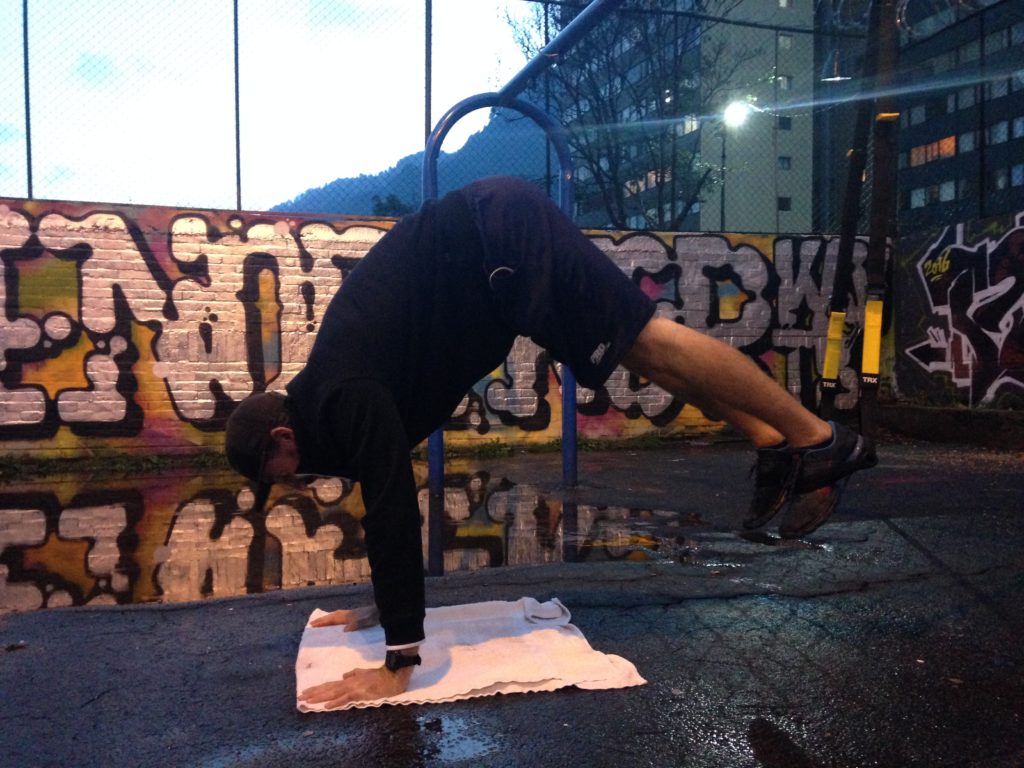
The 16 hour fast with the 8 hour feeding window is great for men to get fast results and maintain weight loss over time. It’s also the easiest to maintain a low body fat, with some men reporting that they don’t even think about it anymore.
I did this style of eating for about 12 months, and I wouldn’t eat breakfast or anything that would raise my insulin level, so I’d only drink black coffee and water in the morning until about noon. At 11, I’d go have a workout. And then I would start eating again about 12.
For me and many of my male clients, this was a very, effective strategy for maintaining a lean body mass. It also gives men a ton of energy, because you’re always activating your sympathetic nervous system.
For females this type of fasting if done long term can have profoundly negative effects, like lack of energy, missing periods, and adrenal fatigue. The exception seems to be that women who have already gone through menopause do better with a 16/8 fast for a medium length of time like 2-6 months (based on empirical evidence only)
The Best Type of Fasting for Women (but it’s great for Men too)
A 20-24 hour fast once per week is the best option for women who want to use this system to lose weight.
You get many of the benefits that you would receive from the 16/8 hour fast but without having to do it every day.
- It provides a full day in the autophagy process.
- It provides a hormonal reset for insulin and hunger hormones.
- It eliminates up to 10% of your weekly calories, which can provide weight loss even if nothing else changes.
- It exposes your body to slight feelings of hunger which will make you mentally stronger
The way to do a 24-hour fast most effectively is to eat an early dinner, around 6 or 7pm, but even earlier is fine. Then close your kitchen for the evening.
When you wake up, drink a big glass of water and have some coffee or tea if you want it. Avoid calories to keep your insulin from rising.
Go throughout the day without eating. It’s better to do this on a weekday I’ve found becuase then your mind is on other things rather than being obsessed all day with “I’M HUNGRY” – which can happen on weekends.
Then have a later dinner, ideally 24 hours after your previous meal, but if you’re starving at 20 hours, that’s fine also. Break the fast with something with a high nutrient density like a superfood shake or a big salad. Then eat your dinner, which should also be high quality nutrition. Having a good meal here will satiate your hunger and cause you to sleep better than you would if you were still fasting.
For transformations and radical fat loss fast for 24 hours ONCE per WEEK.
For slow fat loss and maintenance fast for 24 hours TWICE per MONTH.
For maintenance, hormonal re-balancing, and healing properties fast 24 hours ONCE per MONTH.
Get the Most out of Your Intermittent Fasting

- Make sure you’re getting enough protein. Start by trying to get 0.9g per lb of bodyweight. This can be difficult, so don’t be afraid to use a High Quality protein supplement.
- Make sure you’re prioritizing fat over carbs. It can be helpful to track your calories for a few days to see what you’re actually taking in. Eat: meats, nuts, avocado, coconut oil, eggs, and wild fish.
- Sleep 7+ hours per night. Fasting is a stressor (like working out), so you need to make sure you’re able to recover enough to get the benefit. If you’re sleeping less than 6 hours every night, you should not use Intermittent Fasting.
- Do short efficient bodyweight workouts to prioritize fat loss and muscle gain without overtaxing your body. You can do these on fasting days, but morning is best. This is also a good day for low intensity cardio.
Stop Fasting If….
- You feel like you’re actually gaining weight in your midsection
- You miss a period
- You start having insomnia
These three things signal that your body is under too much stress. If that happens, check with a Dr, take a break from IF, and focus on your recovery and de-stressing techniques.
Also don’t be afraid to cut your fast short if you’re feeling INTENSE hunger pangs around 18-22 hours. You’ll get a lot of the same benefits from just getting to 20 hours, and you can always do it again in a week.

Frequently Asked Questions
Q: If I’m only eating 3 meals per day (i.e. breakfast at 7, lunch at noon, and dinner at 6), isn’t the time in between meals an example of intermittent fasting?
A: Yes. any time you’re not digesting food, you’re technically fasting. To get the most benefit though you want to extend the fasting window to get the most out of autophagy.
Q: Is one meal a day good? If so, what time of day gives the best results?
My opinion after having tried that for about six weeks is it’s not worth the headache. You can get similar results with the 16/8 fasting protocol, without limiting yourself to just 1 meal per day, which can get extreme when you’re trying to eat 1800 nutritious calories in 1 meal. Have you ever tried to eat 600 calories of chicken breast? It’s unpleasant.
Q: When is the best time to break the fast? Before or after working out?
Q: Does Eating During the Fast Ruin Everything?
A: Not necessarily. We want to keep blood sugar low (and thereby insulin), so that eliminates most foods, but SMALL servings of proteins/veggies can be fine (and are used a lot during the Warrior Diet)
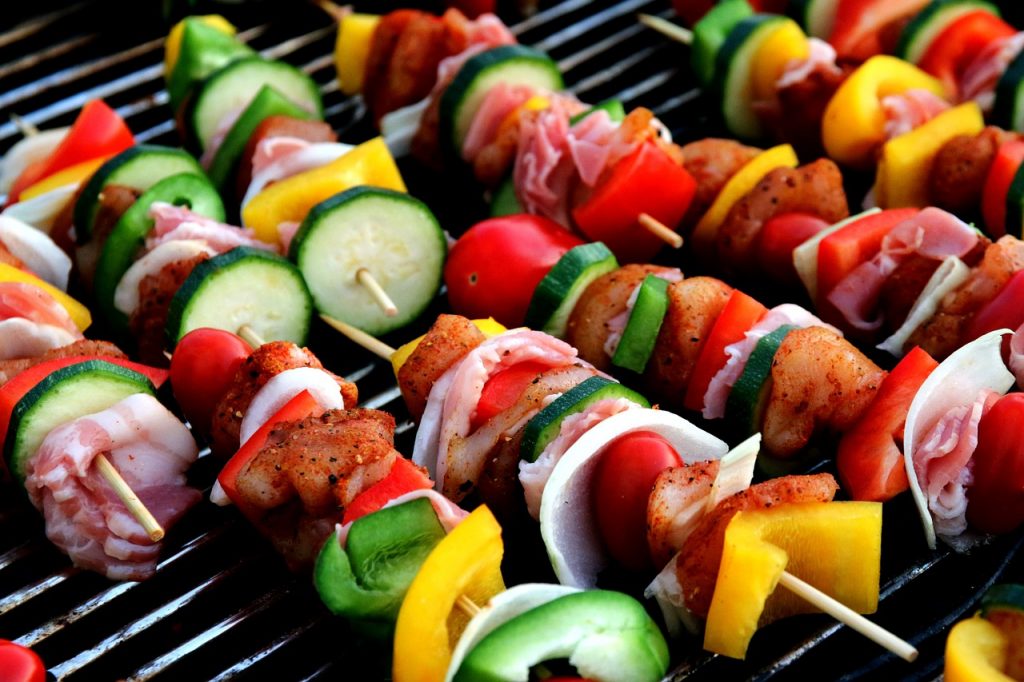
Q: What goals are most suited to which types of intermittent fasting?
Q: Will Fasting Put me Into Starvation Mode/Crash My Metabolism?
A: No, in fact the opposite. Eating and snacking continually is more likely to wreck your metabolism by decreasing insulin sensitivity by constantly elevating blood sugar levels.
By combining fasting with a nutritious diet, you can restrict calories slightly without having to go into a DAILY caloric defect (like most diets). So fasting can actually create a slight uptick in metabolic function.
Q: Can I Have Bulletproof Coffee During the Fast?
A: You CAN do whatever you want, but if the point is to burn body fat, don’t drink extra fat. Your body is set up to burn the foods we eat first, so it would effectively negate the fat burning benefits, as well as starting the digestion process, eliminating autophagy.
So no. Don’t do that.
Q: What supplements should I take during a fast?
A nutritional cleansing product can be used at the same time to improve results and mitigate hunger. (NOT THE “Master Cleanse” – remember, no spiking blood sugar).
I recommend using Branched Chain Amino Acids (BCAAs) post workout if you’re not going to eat for 3+ hours. This can be used 1-3x during the day to maintain muscle and cut feelings of hunger, especially if you hate drinking water (but why would you hate that?)
Vitamins, Omega 3’s and Creatine are also good and can be used daily.
Q: Wait, Don’t BCAA’s Stop Your Fast?
A: Wow! Great Question! BCAA’s cause a temporary increase in insulin levels, which YES, does stop the autophagy process.
However, there is no increase in blood glucose levels, so that temporary insulin bump will settle back down within a few minutes and allow you back into the fasting process (SOURCE). Many people have said that taking anything sweet, Leucine or Valine (amino acids found in BCAAs) will completely disrupt a fasted state, but I have not found evidence to support this position.
BCAAs are not a magic supplement, nor is your muscle going to disappear just because you didn’t eat for a few hours. It’s simply a way to rebuild your muscles after a hard workout without eating or spiking blood sugar. Use them if you like them, but I find that especially for men doing more than a week of fasting, BCAA’s can be a great tool.
In Conclusion
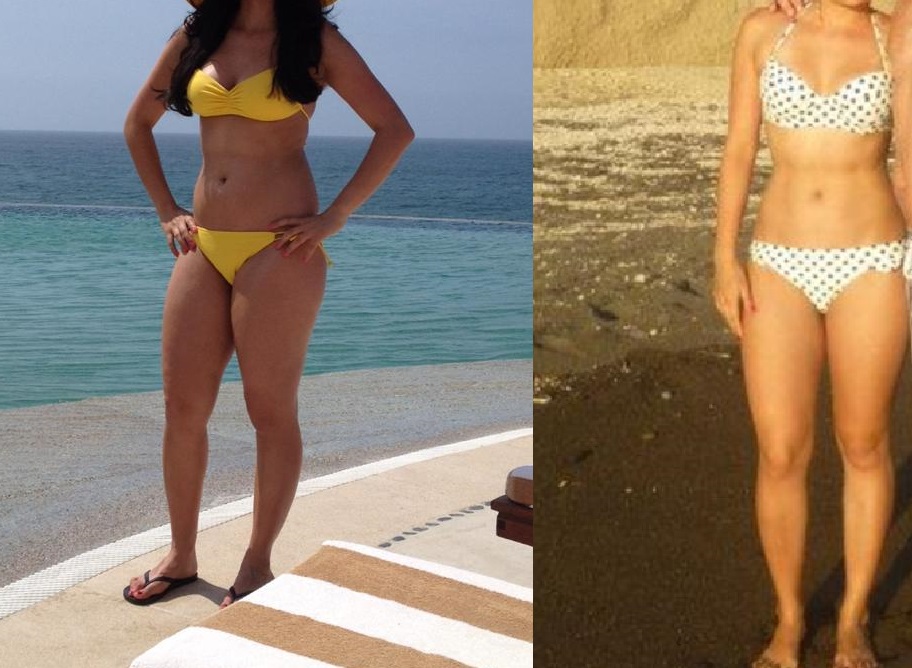
Fasting is great.
It optimizes our hormones.
Fasting makes us more insulin sensitive, so that when we do eat our food, the more the nutrients we eat go to muscle instead of fat.
It shrinks our stomach, which makes us less hungry long-term.
Fasting puts us into a process called autophagy, which cleans our cells out and replace broken and bad cells in our body.
So this is VERY contrary to the belief of “eat-six-small-meals-per-day” that’s been really popular in fitness for the last decade.
The 16 and 8 hour fast is great if you’re a guy, and you don’t necessarily feel hungry in the morning.
The 24-hour fast 1-4x per month is ideal for everyone.
If you’re looking for more information or want a program that details exactly HOW to optimize fat loss with Intermittent Fasting, click the link here to take a short survey and I’ll be in touch to see if it’s right for you.
Have you tried fasting? What did you think?
For Access to your FREE Guide to the Three Best Meals to Break Your Fast, CLICK HERE.
